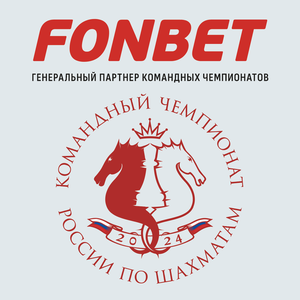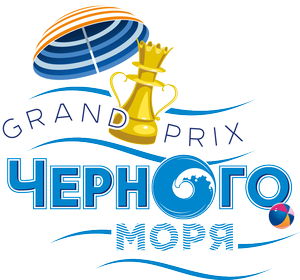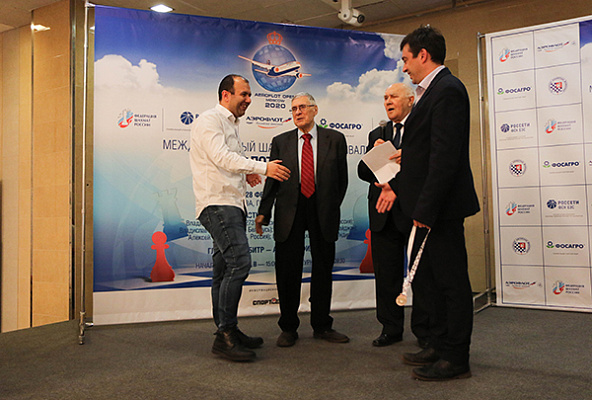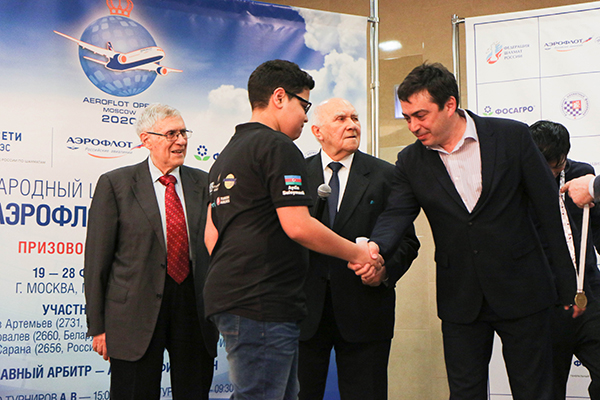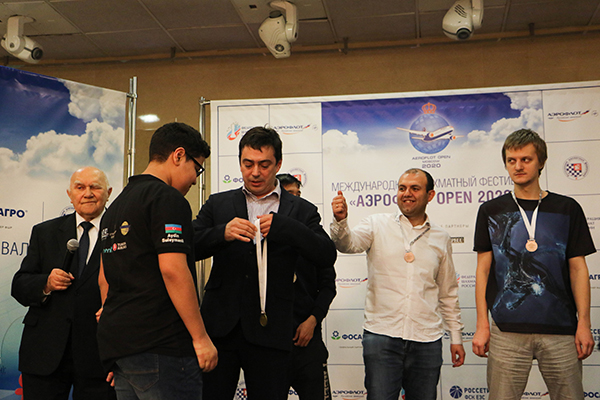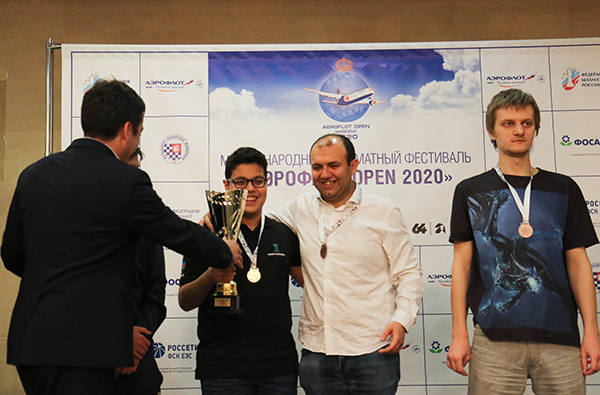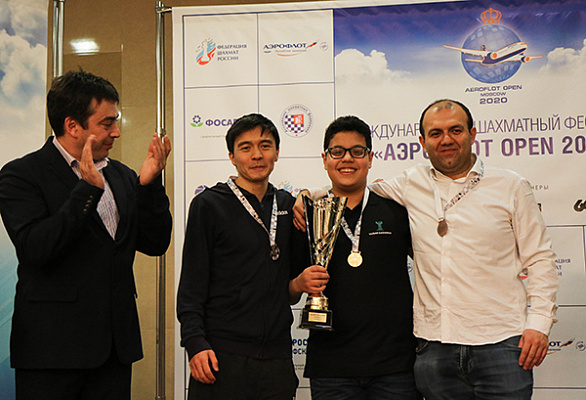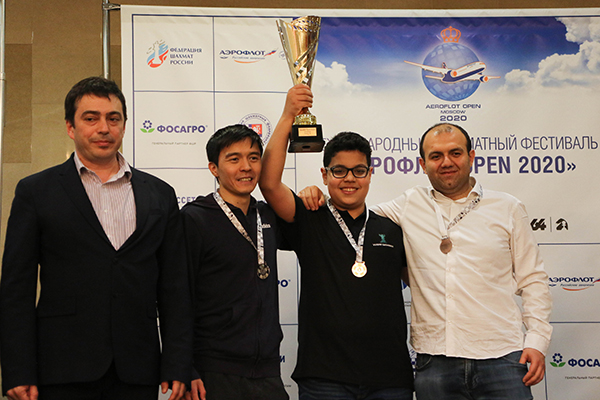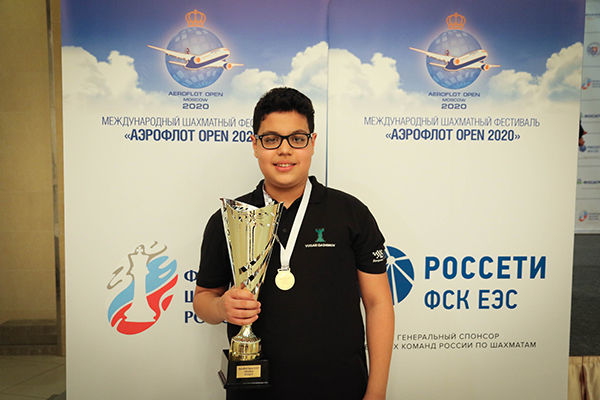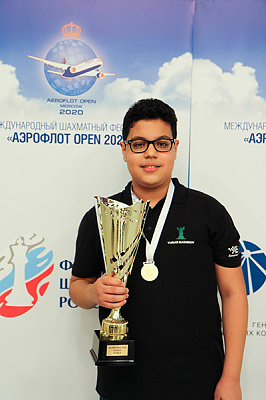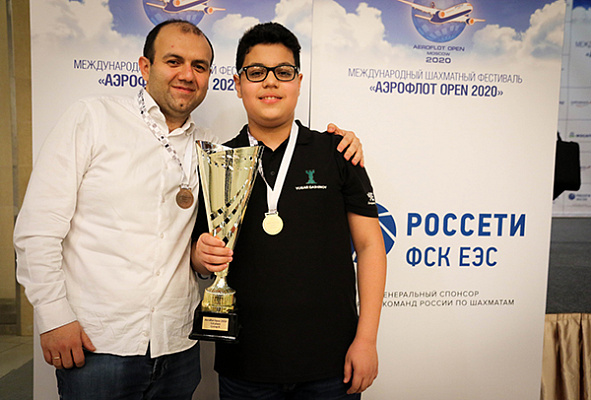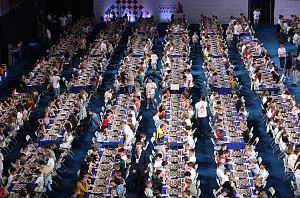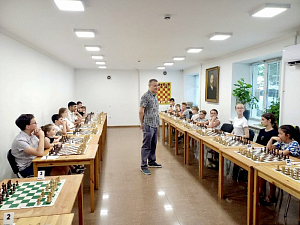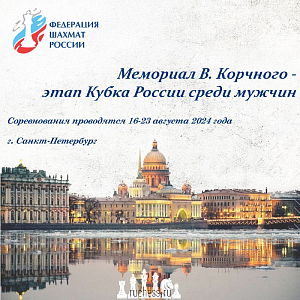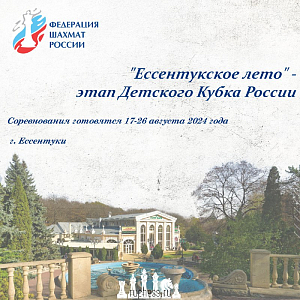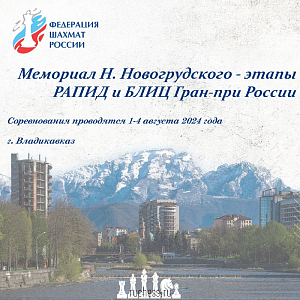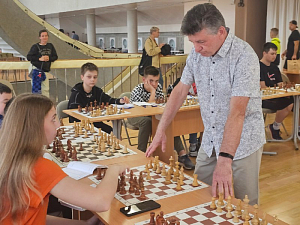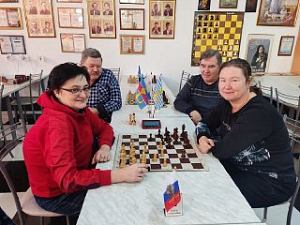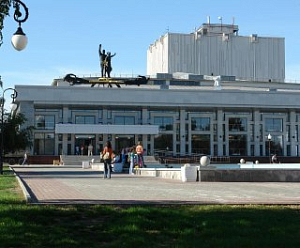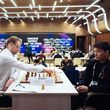Exceeding the Norm
Eteri Kublashvili’s report on the Aeroflot Open 2020 finale
While the world is getting accustomed to the new realities and limitations caused by the spread of coronavirus, one of the strongest tournaments, Aeroflot Open 2020, ended in Moscow without any incidents. Held under the auspices of a high-profile company, it is the competition's 18th edition, which is, without exaggeration, a trademark of stability. As time goes by, organizers, arbiters, some participants, and decorations remain unchanged. The only difference, perhaps, is that this time the main tournament's winner is no longer entitled to a ticket to Dortmund.
In my opinion, there are two features that help this year’s edition stand out. Let's begin with the sad one as a number of strong participants, from Baadur Jobava to Ekaterina Kovalevskaya, dropped out of the tournament following a series of setbacks in the race.
On the positive side, the young talents were in full shine here. Thus, becoming the youngest (at the moment) Russian grandmaster is Arseniy Nesterov, who defeated Baadur in round five, which cost the Georgian player the participation in the competition.
Volodar Murzin’s over 2600 tournament performance has brought him the second grandmaster norm. The 2600 peak has also been conquered by a 12-year-old Indian player Bharath Subramaniyam, who used to be among the leaders at one point of the race. He has made his first norm.
Hitting the headlines, of course, was the performance of Aydin Suleymanli of Azerbaijan. The home stretch saw a 14-year-old player literally annihilating his compatriot Vasif Durarbayli, defeating a highly seasoned Ilya Smirin, as well as one of the strongest young players on the planet Parham Maghsoodloo.
Playing Black against Rauf Mamedov in the last round, Suleymanli needed a draw to seal the first place thanks to his superior tie-breakers. This is what Aydin did by holding the opponent’s pressure at bay with a precise defense in the Exchanged Caro-Kann. A draw was agreed after Black’s move 29.
After the game, I talked to a master who turned out to be a very pleasant company with good command of English at that.
– Aydin, my congratulations on your excellent result! How was the tournament unfolding for you, and which game are you especially happy about?
– Thank you. It has been a challenge for me, but I am happy about my result. I think I was performing well. Most of all, I like my game with Ilia Smirin, where I sacrificed a piece and launched an attack against the king.
– Do you think you managed to take your opponents by surprise in the openings in those games that you won?
– In games with Maghsoodloo and Durarbayli - yes, but in playing Smirin, I relied on what I do on a regular basis.
– What about the last-round game with Rauf Mamedov, was it a hard one for you?
– To play Rauf Mamedov was not easy, not only because the fate of the first place was being at stake in that game. I have great respect for this player. Having visited his lectures and master classes on many occasions, we have never played a single classical game going into that final round.
– Who was assisting you at this competition? Who is your coach?
– Both here and in general I collaborate with GM Farid Abbasov. During this competition, he helped me prepare for my opponents.
– How long have you been collaborating?
– Since 2015. It has been five years now.
– What were your goals going into Aeroflot Open?
– I was looking to make a GM norm. The share of first came as a surprise for me (laughing). Now I have two GM norms, but I need one more for the title.
– Who is your favorite chess player? Do you have any chess idol?
– They are a world champion Magnus Carlsen and Shakhriyar Mamedyarov of Azerbaijan.
– Please let us know more about yourself. Where do you live and study? At what age have you started playing chess?
- I live in Baku and go to a regular school. I have started since I was five, which means I am over ten years in chess now.
– How long do you spend studying chess on a daily basis?
– Some five-six hours.
– How do you manage a double job of studying chess and going to school?
– Chess is a priority for me. I devote most of my time to it.
– What plans do you have for the future?
– In March, I am playing in the Azerbaijan championship. I want to go on with my good series and I hope that I’ll also perform well there (smiling).
–Would you like to beat Magnus Carlsen?
- Of course (laughing). I think that’s the goal of any professional player.
- Can you picture yourself as a World Champion?
- (Taking a pause) Probably.
As we were taking this interview, it was somewhat premature to claim one hundred percent victory since other leaders’ games were still underway. Aydin was clearly the one with the best tiebreakers, but life teaches you against hurrying with loud statements.
Other boards were witnessing tough battles with no short draws. Playing White on board two, Aravindh Chithambaram beat Sanan Sjugirov, Rinat Jumabayev was superior to Aleksandr Shimanov as Black. Aleksej Aleksandrov showed class in a position with two bishops and a knight against a rook by outplaying Alexey Sarana within the required 50 moves.
The Yilmaz-Adhiban game was the last to finish the tournament: the Turkish GM emerged with a big edge out of the opening, then let it go and had to switch into the defensive himself. Adhiban fought like a lion (it is not for nothing they call him Beast), trying to convert his advantage, but after as long as eight hours of fighting, a draw was agreed in a position with the white bishop opposing three black pawns.
As a result, Aydin Suleymanli, Rinat Jumabayev, Rauf Mamedov, and Aravindh Chithambaram ended up with 6.5 points apiece. Better tiebreakers, i.e., more games played as Black and taking into account the average rating of opponents, landed a 14-year-old master of Azerbaijan in the first place. The Kazakh GM finished second, and Rauf Mamedov third. It worthy of noting that the native of Baku is a record-holder of having participated in all 18 editions of Aeroflot Opens.
Group B had as many 105 athletes from 18 states fighting for prizes. Tigran Harutyunyan (Armenia), Nikita Afanasiev (Russia), and Stanislav Bogdanovich (Ukraine) have scored 7 points each. This is exactly the order the additional tiebreakers have sorted them out into.
Erdenepurev Boldoo of Mongolia has won the C tournament (with 108 participants out of 17 countries) with 7.5 points, overtaking Maksad Sapaev of Uzbekistan by additional tiebreakers. The third and fourth places are co-shared by Russians Sergey Nefedov and Grigori Ter-Saakian.
The same evening saw the awarding ceremony held by the Tournament Director Alexander Bach, CFR Executive Director Mark Glukhovsky and Chief Arbiter Andrzej Filipowicz.
We wish new big achievements and records to the participants and organizers of this festival.









